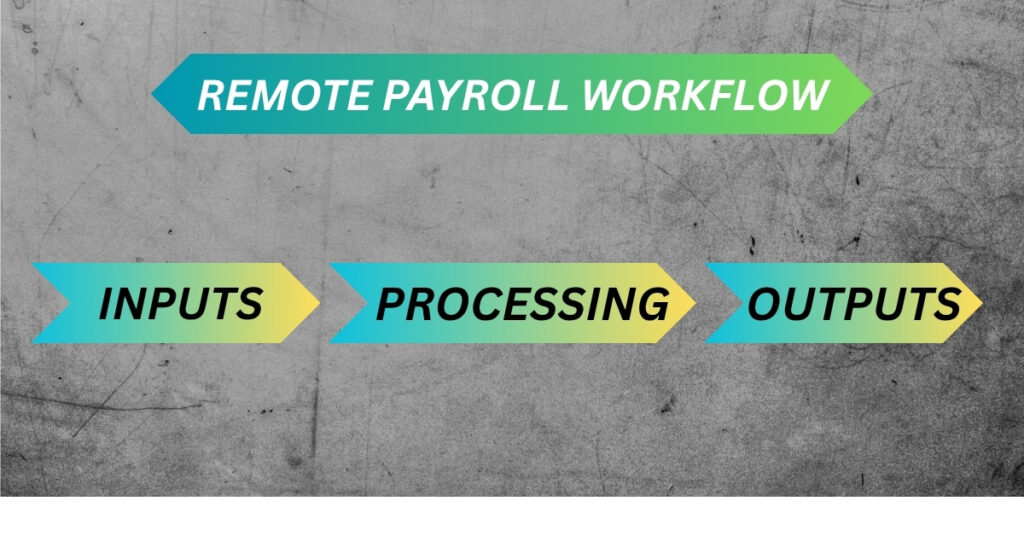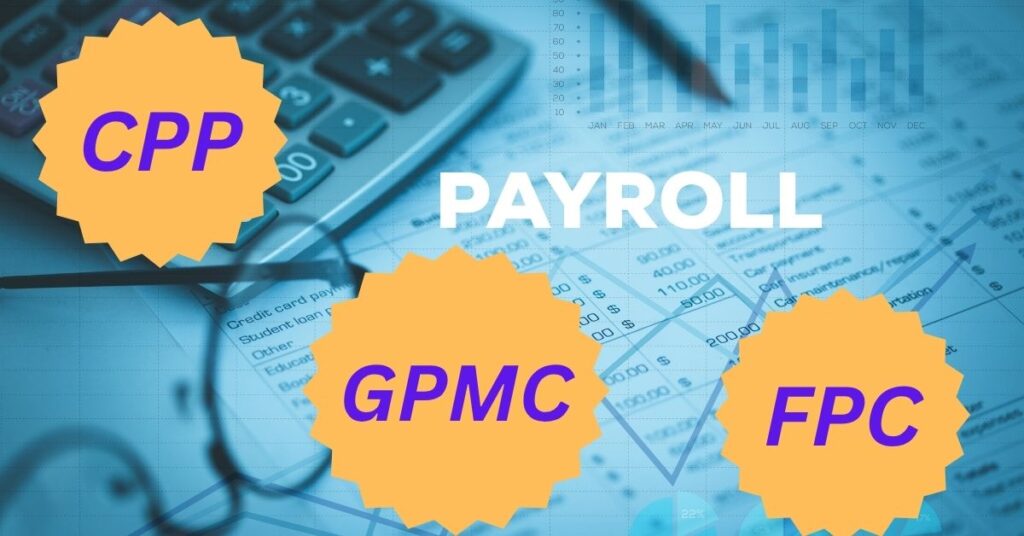Remote Payroll Jobs: Your Gateway to Flexibility and Financial Growth
In the world of digital revolution, remote work models are being adopted all over the world, where payroll operations have experienced a significant transformation. A role that was strictly confined to the in-office finance department is now a gradually flexible and available career path.
Payroll jobs offer a unique opportunity for job seekers, especially beginners and career switchers, to get professional independence, enjoy their balanced life, and achieve financial stability.

What Are Remote Payroll Jobs?
Remote Payroll Jobs encompass the process of compensating employees without being physically present in a traditional office. These professionals ensure precise calculation and distribution of salaries, wages, benefits, and deductions through Cloud-Based payroll systems.
Despite the nature of the job, either part-time or full-time, remote payroll consultants frequently coordinate with human resource and accounting teams virtually for:-
- Managing a payroll on a weekly, biweekly, or monthly basis
- Ensuring tax compliance with legal requirements
- Managing employee benefits
- Maintaining payroll records
- Processing payroll discrepancies or inquiries

Why Remote Payroll Jobs Are Growing In Demand
There are many factors behind the rising demand for remote payroll professionals:
- The world has shift to remote and hybrid work models.
- Expansion of small and medium enterprises (SMEs) requires outsourcing payroll support.
- Involvement of digital tools and Cloud-Based systems increases the demand for payroll professionals.
- International hiring requires knowledge of multi-jurisdictional payroll rules.
This growing trend offers multiple opportunities for individuals entering the job market or looking for career redirection.

Who Should Consider A Remote Payroll Career?
Remote payroll jobs are ideal for:
- Recent graduates in accounting and finance, or business studies.
- Administrative professionals seeking skill development.
- Hands-on parents returning to the workforce.
- Career switcher from customer service to data entry or HR roles.
The nature of the job is repetitive, doing the same tasks over and over again with little variations.
Skills Needed For Remote Payroll Jobs
Typically, all employers do not require extensive experience, but successful payroll professionals usually develop a mix of technical and soft skills. These skills consist of:
Technical Skills:
- Well familiar with payroll platforms like ADP, Gusto, or QuickBooks, etc.
- Understanding of tax codes and labour laws
- Accuracy of data entry and Excel proficiency
- How to handle confidential or restricted documents.
- Basic knowledge of recordkeeping and auditing.
Soft Skills:
- Time management
- Communication skills (particularly with HR and accounting teams)
- Finding solutions
- Adaptability and learning agility
- Independency and discipline are both essential for remote work.
Educational Requirements And Certifications
A bachelor’s degree in accounting, finance, or business is ideal for payroll jobs. Several entry-level payroll positions are available to those with diplomas in commerce or associate degrees, but they must hold certifications.
Recommended Certifications:
- Fundamental Payroll Certification (FPC) – For beginners and job seekers
- Certified Payroll Professional (CPP) – For more experienced professionals and specialists
- Global Payroll Management Certificate – For consultation with international clients
- Certifications help build credibility, particularly for career switchers.

Common Tools And Platforms In Remote Payroll Work
Mastering digital tools is very crucial for remote payroll professionals. The most dominant platforms are:
- Payroll software: ADP, Gusto, Paychex, and Zenefits are examples of payroll software. The purpose of these software is to automate, simplify, and ensure accuracy in managing the salaries and compensations of employees.
- Accounting systems: Xero, FreshBooks, and QuickBooks are examples of accounting systems. Their job is to help small businesses and freelancers manage their finances.
- Time tracking tools: TSheets, Toggl, and Clockify are examples of time tracking tools. These are the platforms used for comprehensive time tracking and job costing purposes.
- Communication tools: Slack, Zoom, and MS Teams are examples of communication tools. This job is to streamline workplace communication through organized channels.
- Cloud storage: Google Drive, Dropbox are examples of Cloud-Based systems. These platforms are used for storing, sharing, and collaborating on files from any device.
Understanding and handling of these platforms significantly improve job performance and employment potential.
Benefits Of Remote Payroll Jobs
Remote payroll has different roles and provides substantial advantages, particularly for individuals emphasizing their work-life balance and independency. The benefits are remote payroll jobs are:
- Flexible schedules: Often flexible timing of work that doesn’t require a strict hours schedule to follow.
- Geographic freedom: Work from anywhere, anytime, with the availability of the internet.
- Cost savings: No physical travelling, office wardrobe, or any relocation expenses.
- Scalability: Freelancers can manage multiple clients virtually and increase their income.
- Job security: Job security in remote payroll is strong for specialists, particularly for those who can handle international compliance using digital tools.

Challenges To Consider
Just like other remote jobs, remote payroll work also has its barriers:
- Data privacy risks: Major obligations for safeguarding personal and financial information.
- Regulatory complexity: There are different payroll laws in different countries all over the world.
- Lack of face-to-face support: Payroll professionals mostly depend on information gathered through virtual resources. Lack of face-to-face interaction, these communications can become slower, less accurate, and effective.
- Deadlines: These are the specific dates and timeframes by which payroll-related targets must be completed, such as monthly and biweekly.
Despite these difficulties, conducting proper training, clear processes, and digital tools can mitigate most of the challenges.
Career Pathways In Remote Payroll
Remote payroll jobs can offer well-paying and stable career growth opportunities. A typical career path looks like:
- Payroll Clerk or Assistant
- Payroll Specialist
- Senior Payroll Coordinator
- Payroll Manager or Director
- International Payroll Consultant or Advisor
Certain professionals may diversify into wider responsibilities in human resources, finance, or business operations.
Salary Expectations
Depending on experience, certification, and region, salaries and wages for remote payroll jobs also vary.
The following are approximate annual ranges (USD):
- Entry-level professionals: $40,000–$55,000
- Mid-level consultants/professionals: $55,000–$75,000
- Senior/Managerial: $80,000–$100,000 above
- Freelancers: $25–$60 per hour, depending on client and complexity of the job
In many cases, remote payroll jobs provide the same pay scales as in-office jobs, due to location independency.
How To Start
The following are real-world steps to enter this exciting profession:
- Become certified: Begin with FPC or comparable user-friendly certifications.
- Acquire software knowledge: Take instructional videos or enroll in courses on Gusto, ADP, or QuickBooks to gain software expertise.
- Update your resume: Emphasize adoptable skills such as data entry, Excel, or customer care service.
- Apply strategically: Utilize promotional boards for remote opportunities such as We Work Remotely, Remote.co, or FlexJobs.
- Construct a portfolio: Construct your portfolio to provide payroll services on freelance websites such as Upwork, Fiverr, and freelancer.com.
Conclusion
Remote payroll jobs provide an attractive option for those looking for a stable, growth-oriented, and flexible career. Whether you are starting from the beginning or shifting from another field, this way gives a chance to obtain marketable skills, contribute significantly to business operations, and enjoy the freedom of working from anywhere in the world.
As remote work becomes a prominent feature in the world economy, the demand for skilled payroll specialists will only increase. So, there is an ideal time to start your journey in the attractive field of remote payroll.

Related Articles:-
- Payroll Advance: Powerful Ways to Enhance Workplace Morale
- Powerful Mobile Marketing Strategies You Must Try
- Best Marketing Tools In An Advertising Plan
- Mastering Revenue Expenditure for Business Success
- Market Research And Its Importance: A Comprehensive Review
- What You Should Know? Notes Payable And Accounts Payable
- Digital Marketing And Strategies: A Comprehensive Review with Examples
- Are Annuities the Best Investment for a Bright Future? A Comprehensive Analysis
- Understanding Capital Expenditure: Definition, Significance, and Its Association in Financial Decision-Making
- Difference Between Accounting And Finance: A Proven Comprehensive Guide For Beginners
- Difference between Annuity due and Ordinary Annuity
- Essential Accounting Software for Small Enterprises
- 5 Best Software For Small Business Accounting







